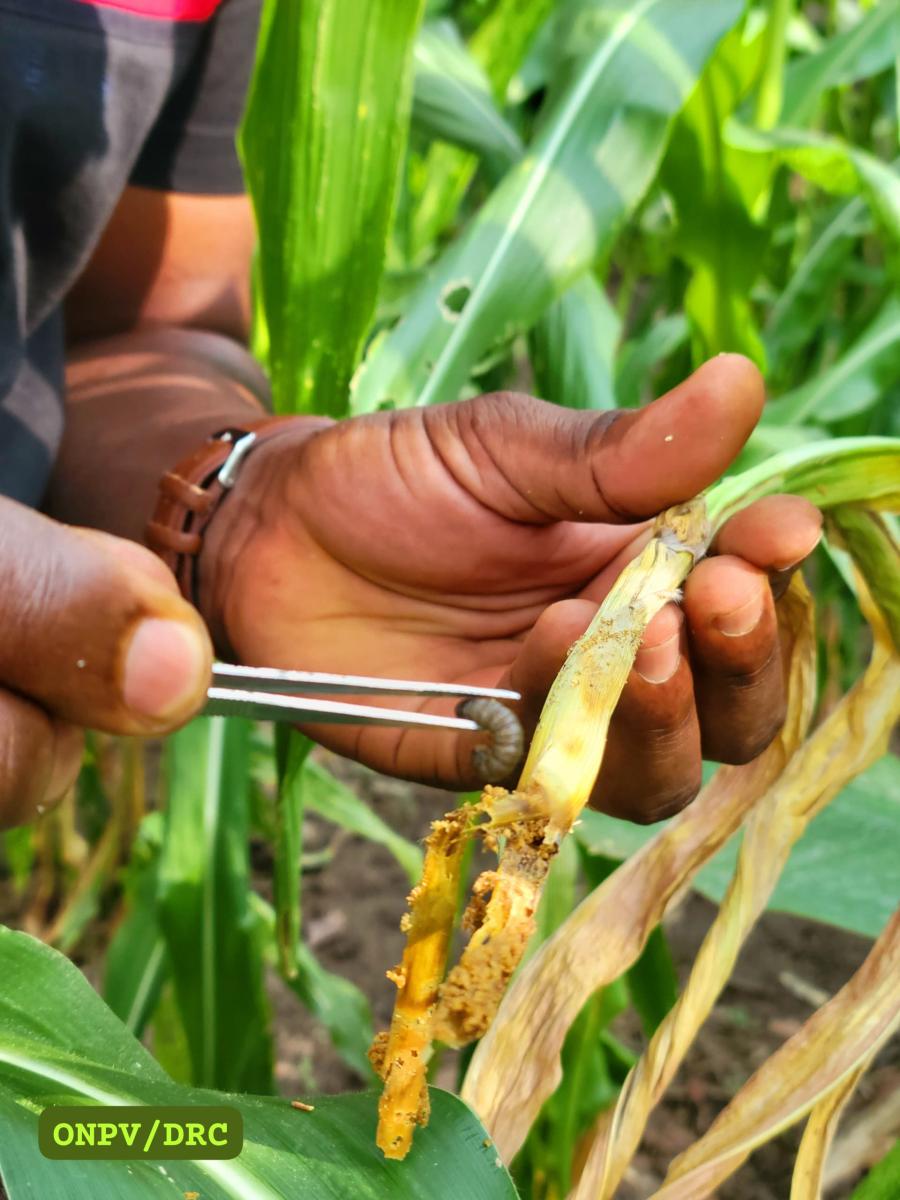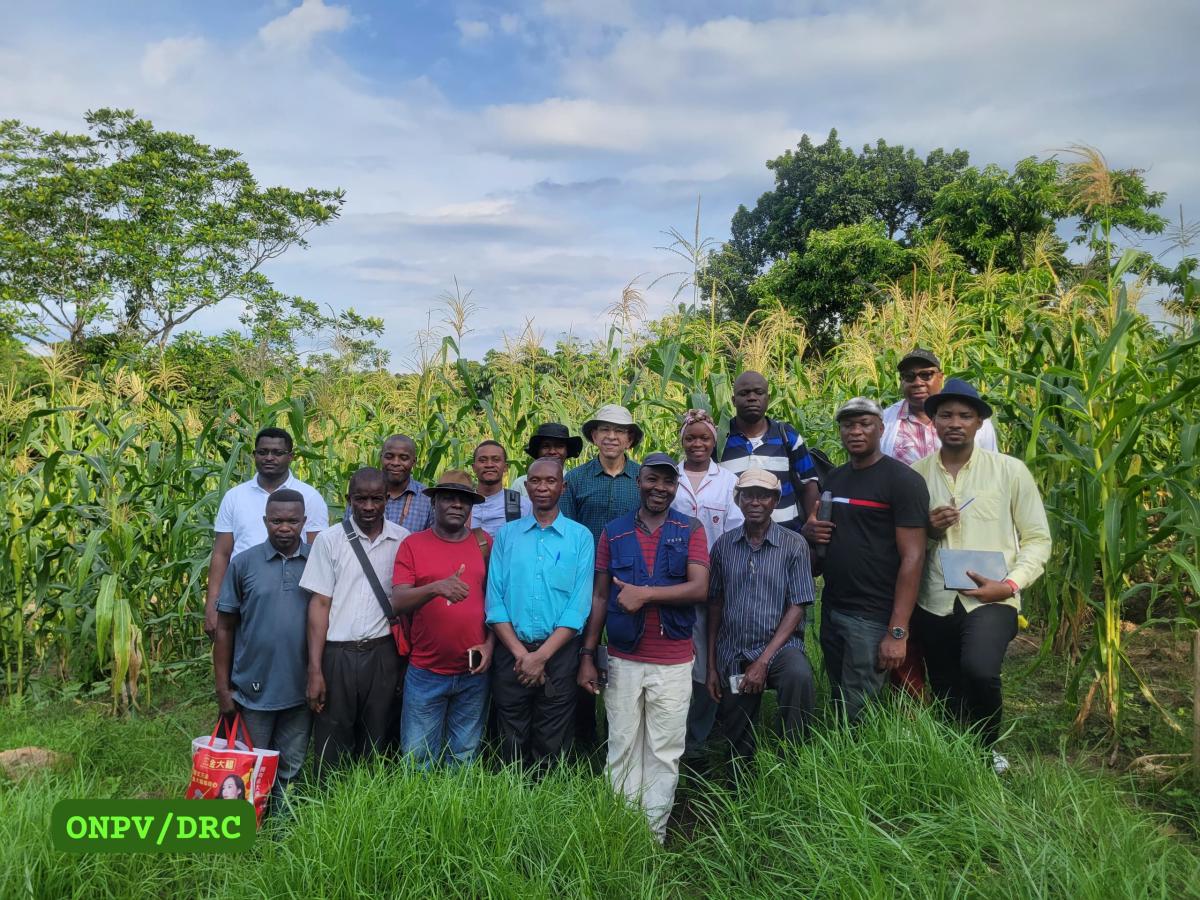The Congo's Leap Towards Agricultural Resilience with the African Phytosanitary Programme
By Jean-Louis TSHISAMBU
In the heart of Kinshasa, amidst the bustling streets and the verdant sprawl of the Congo Basin's outskirts, an important partnership is taking root. From March 28th to 29th, 2024, the Democratic Republic of the Congo's Ministry of Agriculture hosted an esteemed visitor, Mr. Osama El-Lissy, the Secretary of the International Plant Protection Convention (IPPC), whose mission was to sow the seeds of collaboration for a greener future.
"The Congo is on the brink of a breakthrough in agricultural sustainability and security," El-Lissy shared as he outlined the dual goals of his visit: implementing the electronic phytosanitary certification (e-Phyto) and kick-starting the African Phytosanitary Programme (APP) within this fertile land.
The Africa Phytosanitary Programme (APP) is an initiative of the International Plant Protection Convention (IPPC) Secretariat and the African Union Commission on Agriculture, Rural Development, Blue Economy, and Sustainable Environment (ARBE).
The APP, a visionary initiative of the IPPC Secretariat and the African Union Commission, aspires to fortify Africa against plant pests and strengthen the resilience of Africa’s phytosanitary systems against plant pests of regulatory, economic, and environmental significance. The APP seeks to boost the technical capacity of Africa’s plant-health professionals by providing training, encouraging collaboration, leveraging resources, and enhancing knowledge sharing to prevent and manage the impact of plant pests in the region.
"Our continent's flora is under siege, and it's a battle we cannot afford to lose," declared the African Union Commission on Agriculture representative. "With the APP, we're not just fighting pests; we're cultivating hope."
Indeed, hope is a precious commodity in a world where climate change and global mobility render borders increasingly porous to plant pests. These relentless and adaptive invaders threaten the biodiversity of regions like the Congo and the food security and livelihoods of millions.
During his stay, El-Lissy didn't just engage in high-level meetings; he took to the fields, engaging hands-on with the technologies and methodologies the APP champions. Armed with tablets, he and a team of experts embarked on exercises to detect notorious pests like the Fall armyworm and the Banana bunchy top virus. "Seeing these tools in action," he remarked, "reaffirms our belief in the power of technology to safeguard our ecosystems."

His visit was more than a mere ceremonial gesture—it was a testament to the global commitment to agricultural resilience. The Minister of Agriculture of the Democratic Republic of the Congo Mr. José M'panda Kabangu expressed enthusiasm for the partnership and stressed the significance of this moment for the country. "This collaboration marks a new dawn for our nation's agricultural sector," he stated, underlining the critical role of early warning systems and preventive measures in the battle against plant pests.

As the APP gears up for implementation across 54 African nations, with pilot programs already making strides in 11 countries, the Democratic Republic of the Congo stands poised at the forefront of an ambitious endeavor. The journey ahead is fraught with challenges, but with the seeds of partnership now firmly planted, the future looks promising.
"In unity, there is strength," El-Lissy concluded, a sentiment echoed by the gathered dignitaries and experts. As the sun set on Kinshasa, it wasn't just the end of a visit but the beginning of a transformative journey for Africa's agricultural landscape.
The author is a Plant Health Inspector & Communications and ICKM National Focal Point for CCARDESA in the Democratic Republic of Congo( DRC).

























































